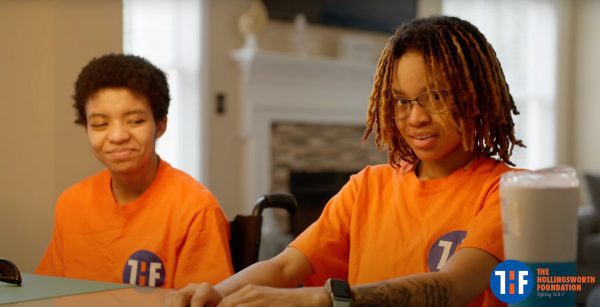Partnering with The Hollingsworth Foundation to Fight SCA-7

UNC Charlotte Leadership Academy participants have joined forces with The Hollingsworth Foundation to promote awareness of SCA-7, a rare neurodegenerative disorder. With less than 1500 people diagnosed with SCA-7 in the United States, and less than 2% of all SCA cases, little is known about the disorder, and even less is being done to create treatments (Hollingsworth). The disorder can be highly debilitating, causing affected persons’ and their families’ quality of life to suffer.
Learn more about SCA-7 and what you can do to help through this short video and following article.
The Hollingsworth Foundation aims to shed light on the obstacles faced by persons living with SCA-7, providing support and hope to both individuals and families dealing with the realities of this disease. Their commitment to a better future for the SCA-7 community is shown in concerted efforts aimed at public awareness campaigns, research funding, clinical studies, and close collaboration with professionals.
Spino-Cerebellar Ataxia Type 7 (SCA-7) is characterized by gradual deficits in balance, coordination, vision, and other brain processes. It is a member of a class of genetic disorders known as hereditary ataxias, which primarily impact the cerebellum and its connections. The ATXN7 gene undergoes mutations that result in the growth of a certain DNA sequence, which in turn causes SCA-7. Symptoms of SCA-7 often appear in mid-adulthood, and they get worse over time. The clinical characteristics of SCA-7 are diverse and include symptoms like ataxia, which is the disease’s defining symptom and denotes a lack of balance and coordination. SCA-7 patients frequently struggle with walking, speaking, and fine motor skills and vision impairments which are caused by build up of the mutant ataxin-7. These visual impairments can include night blindness, aberrant color vision, and progressive loss of central and peripheral vision. SCA-7 has a significant effect on the patient and their families. Patients face declining quality of life, loss of independence, and growing difficulties with daily activities as the condition worsens. In addition, because SCA-7 is genetic, there is a risk that it will be passed onto future generations, which puts a strain on families’ emotions. SCA-7 currently has no known treatment, thus supportive care and symptom reduction are the main therapy goals.

To help, please visit The Hollingsworth Foundation website, and continue the mission of spreading information until it eventually reaches researchers willing to find a cure.
References
La Spada AR. Spinocerebellar Ataxia Type 7. 1998 Aug 27 [Updated 2020 Jul 23]. In: Adam MP, Mirzaa GM, Pagon RA, et al., editors. GeneReviews® [Internet]. Seattle (WA): University of Washington, Seattle; 1993-2023. Available from: www.ncbi.nlm.nih.gov/books/NBK1256
Hollingsworth, D. (n.d.). The Hollingsworth Foundation. www.thehollingsworthfoundation.org